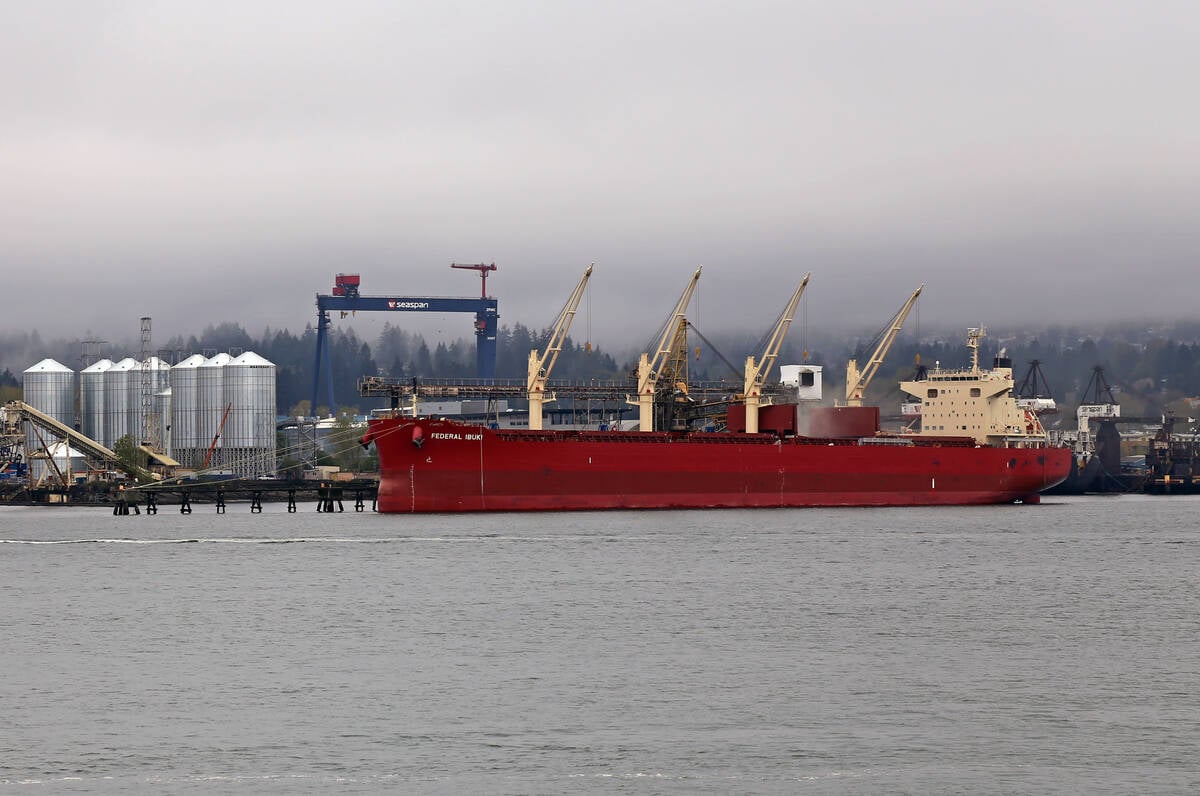Canada ranks fifth in food safety performance among 17 industrialized countries, according to a recent study led by two University of Regina researchers.
That gave the country a superior ranking, ahead of others considered average or poor.
The United Kingdom, Japan, Denmark and Australia placed ahead of Canada based on data in four categories – biosecurity, consumer affairs, governance and recalls, and traceability and management.
Sylvain Charlebois, a marketing professor, and Chris Yost, who is Canada Research Chair in microbes, the environment and food safety, worked on the methodology for the study and examined data over 10 months.
Read Also

Vancouver port says it has improved efficiency
Grain movement has been strong at the Port of Vancouver due in part to a new centralized scheduling system.
Charlebois said Canada’s strong showing was unexpected in that there is a bias toward believing European countries have stronger food safety systems.
“Their agricultural reality is very different than ours,” he said.
“There is the perception that Europe (excluding the U.K.) has got its act together compared to North America,” said Charlebois.
But Canada outperformed the European countries on the list, except for Denmark.
The top five countries all rated superior. Those earning average ratings placed sixth through 14th and included: Finland, the United States, Switzerland, Norway, Germany, Italy, Netherlands, Sweden and Austria.
The bottom three countries that were rated poor were France, Belgium and Ireland.
Charlebois said Canada placed strongest in the areas of consumer affairs (third) and governance and recalls (fourth).
Canada does well in educating consumers about food safety and reports the normal range of food-borne pathogens. The study, however, criticized lax food labelling regulations.
Coincidentally, prime minister Stephen Harper announced new labelling guidelines the same day the study was released.
Canada’s partnerships to support food safety initiatives and its food recall system put it near the top in governance and recalls.
“It makes the CFIA look good,” Charlebois said of the Canadian Food Inspection Agency.
He has been critical of the CFIA and its efforts in research and communication. He maintains the federal agency could still improve.
Canada did poorest in biosecurity, placing 14th, mostly because pesticide use is high. Charlebois said he isn’t convinced there will be much improvement in this area, considering the climate and environment farmers here have to work in.
Canada placed 13th in traceability and management, largely because there is no nation-wide mandatory traceability.
While Canada often considers itself a leader in food safety, a fifth place showing indicates room to improve.
“Farmers have to work with other stakeholders to maintain that fifth-place ranking or improve,” Charlebois said.
Reaction to the report has come in from around the world, except Asia. Not everyone agrees with the findings and Charlebois said that is fine.
“Our intent was actually to ignite a debate on food safety performance,” he said.
The study was the first project by the Research Network in Food Systems, a not-for-profit research group based at the U of R. The researchers plan to conduct a follow-up study in a few years.

















